
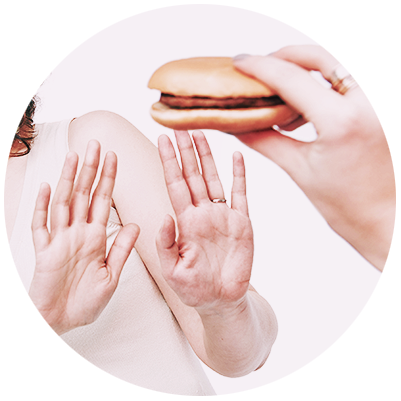
Women can be funny creatures.
Fanatic as we may be about staying in shape, by exercising and eating intelligently, we often skip entire meals because we’re A) just too busy, B) not hungry or C) hungry, but figure it just doesn’t hurt to skip a meal now and again.
Oh, but it does. It really does. Think about newborns and infants. They require a certain amount of milk (breast or formula) each day, in order to grow bigger and stronger. If a mother decided to simply eliminate feedings, here and there throughout the week, the baby wouldn’t get all the nutrition it needed. Of course, women over 50 don’t need to grow bigger (we sure don’t!) , but we must make certain to maintain good health and keep up our strength. When we deny our bodies the proper nutrition they need each day, it decreases our chances of doing either. So while a svelte bod may look good on the outside, it’s probably not working so well on the inside if it doesn’t get the proper vitamins and minerals, not to mention things like omega-3s fatty acids and antioxidants.
Let’s stop here, you’re saying to yourself about now. Practically every day, you read or hear about another dietary supplement that one expert or another claims you MUST take. Calcium and D3 for bones; Vitamin C for collagen; Vitamin E to fight cell damage; magnesium for energy and to help your muscles, arteries and heart to work properly. And how can something called “fatty” be good for you? One look at the packed vitamin shelves in the drugstore sends you into a tizzy, and there’s no one around to help. The shops that specialize in vitamins aren’t any better, since the salespeople try to push everything on you, having no idea what you need. What you really need, you’re convinced, is an advanced degree in nutrition to understand all the gobbledygook thrown at you from every direction.
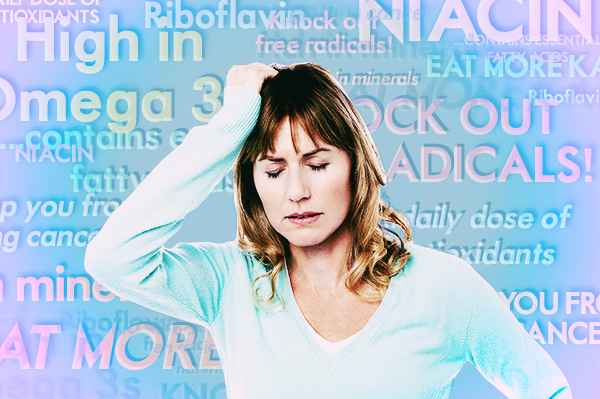
What are vitamins and minerals, anyway?
Well, maybe it would be nice to get a nutrition degree, but making sense of all this isn’t as hard as it appears. Here’s the pared down version for dummies:
Micronutrients are the vitamins and minerals found in food that nourish your body and help keep you healthy.
Vitamins are organic compounds that contain carbon and are needed, in small quantities, to sustain life. We get vitamins from food, because the human body either does not produce enough of them, or none at all. Foods rich in Vitamin A, for example, include cantaloupe, tuna, squash, kale and carrots.
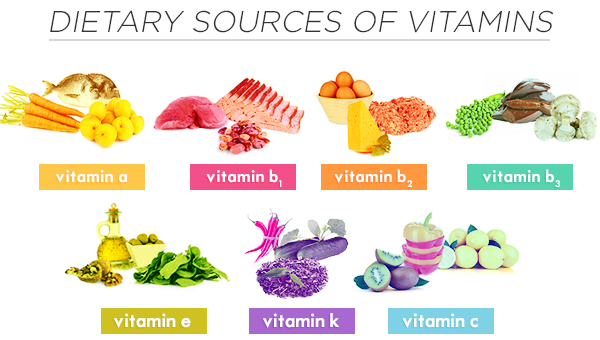
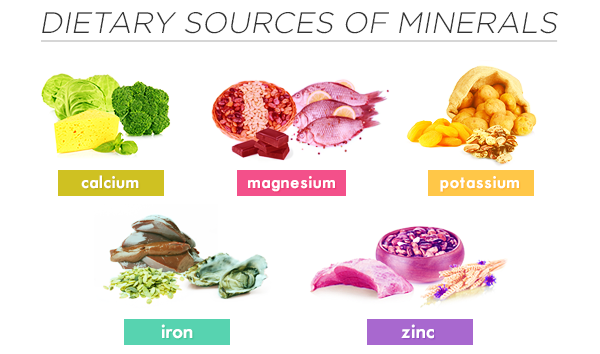
Making sense out of the confusing world of supplements
Enter the world of nutritional supplements, a $14 billion business in the United States, built on Americans’ horrific eating habits. It’s far better, though, to get all of your vitamins, minerals, protein, fiber, and other nutrients from food, stress dieticians, because a pill can’t offer the essential benefits provided by foods, such as vegetables and fruits. These include fiber, phytochemicals (plant chemicals), and a balance of nutrients and disease-fighting antioxidants.
It’s also hard to hurt yourself by absorbing too many vitamins from food (unless you have certain diseases, say diabetes), but taking too much supplemental iron or vitamin A, for instance, can be toxic.
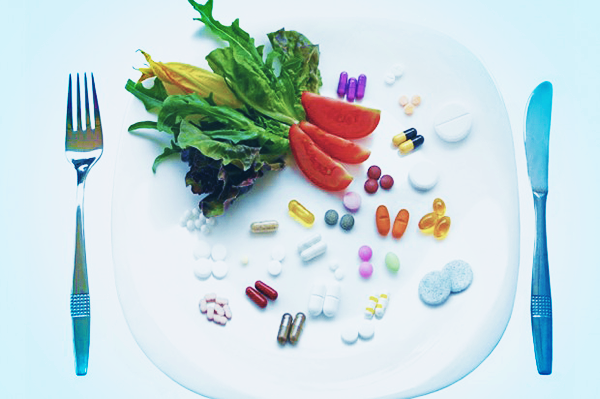
Many reliable online resources, including this one from the US Department of Agriculture, can help you determine the level of essential nutrients you’re taking in each day, based on what you’re eating and how much of it you’re eating. Some blood tests also determine if your body has enough key nutrients, including calcium, iron and Vitamin D. Remember, your need for supplements also depend on your age, weight, level of exercise and on any health conditions you may have that increase the demand for certain nutrients or affect the way your body absorbs them, 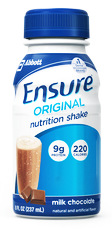 so always check with your doctor if you have concerns. A woman of 50, for example, needs less iron that a woman of 30.
so always check with your doctor if you have concerns. A woman of 50, for example, needs less iron that a woman of 30.
If your head is starting to hurt, because you barely have enough hours in the day to brush your teeth and comb your hair, no less determining how much daily potassium you’re getting, there’s a wonderful option. Ensure, a brand that has been specifically addressing adult nutrition needs for over four decades, wants us to think of it as our own personal nutritionist.
Ensure Original is “a source of complete and balanced nutrition, offering 24 essential vitamins and minerals and with 30 percent less sugar than the previous formula.” It’s also “rich in antioxidants,” which help support the immune system, and an “excellent source” of plant-based omega-3 fatty acid ALA, to support heart health.
What antioxidants do
Oxidation occurs when oxygen interacts with cells of any type, such as an apple slice or, in your body, the cells lining your lungs or in a cut on your skin. This produces some type of change in those cells. They may die, such as with rotting fruit. In the case of cut skin, fresh new cells replace dead cells in time, resulting in a healed cut.
Cells in the body are born and die 24/7. The cycle is perfectly natural and keeps the body healthy. Yet, up to 2 percent of cells will become damaged in the process and turn into something called free radicals. External toxins, especially cigarette smoke and air pollution, also generate free radicals, as does drinking excessive amounts of alcohol. Our food and water even harbor free radicals in the form of pesticides and other toxins.
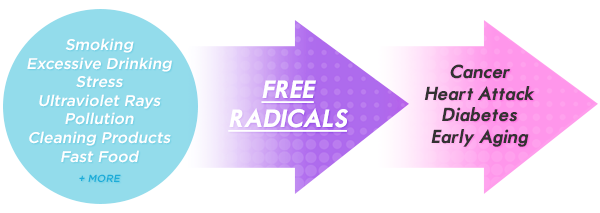
What is ALA Omega 3
Fatty Acid?
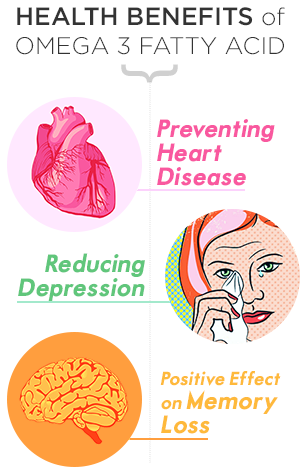
When it comes to fat, one type you don’t want to cut back on is omega-3 fatty acids. Two crucial ones—EPA and DHA—are primarily found in certain fish. ALA, another omega-3 fatty acid, is found in plant sources such as walnuts and flaxseeds. Not only does your body need these fatty acids to function, but also they deliver some big health benefits, such as lowering blood fat (called triglycerides) to prevent heart disease; reducing depression, and possibly having a positive effect on gradual memory loss linked to aging.
While Ensure is not made to be our only source for all the essential vitamins, minerals, antioxidants and Omega 3 fatty acids we need, Ensure Original would be a terrific choice for an occasional breakfast, lunch or as a between-meal snack. It sure takes some of the guesswork out of our lives. We’ve got enough to do as it is. For more great information on meeting your nutritional needs, join the Ensure community and Like it on Facebook.
Ensure partnered with bloggers such as me for its Ensure Active blogger program.
As part of this program, I received compensation for my time. Ensure believes that consumers and bloggers are free to form their own opinions and share them in their own words. Ensure’s policies align with WOMMA Ethics Code, Federal Trade Commission (FTC) guidelines and
social media engagement recommendations.
Which supplements do
you take?

